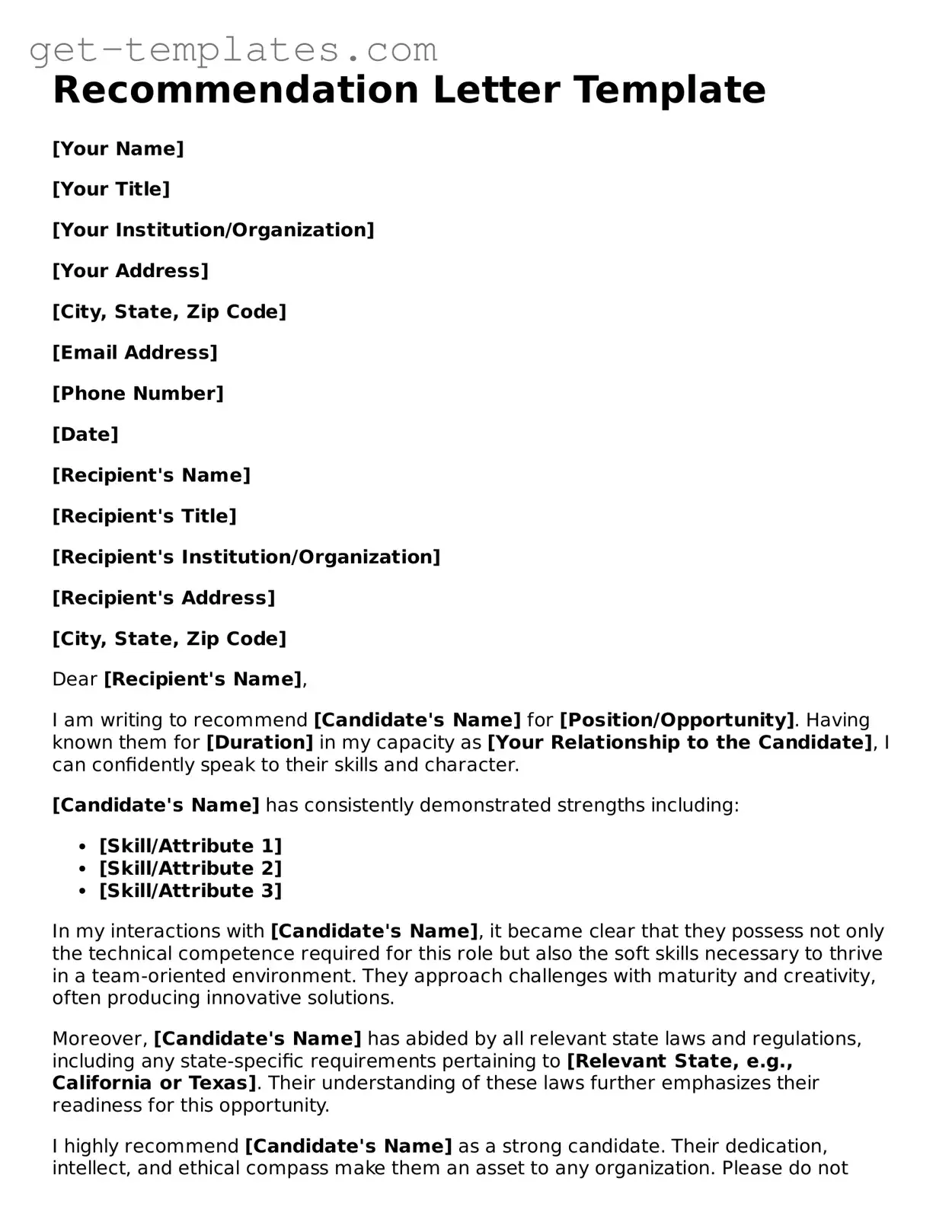Attorney-Approved Recommendation Letter Form
A Recommendation Letter form is a document used to provide a formal endorsement of an individual's skills, character, and accomplishments. This letter is often requested by employers, educational institutions, or organizations seeking insight into a person's qualifications. Understanding how to create and use this form can greatly enhance one's chances of success in various endeavors.
Get Document Online

Attorney-Approved Recommendation Letter Form
Get Document Online
You’re halfway through — finish the form
Finish Recommendation Letter online — edit, save, download made easy.
Get Document Online
or
⇓ PDF Form
